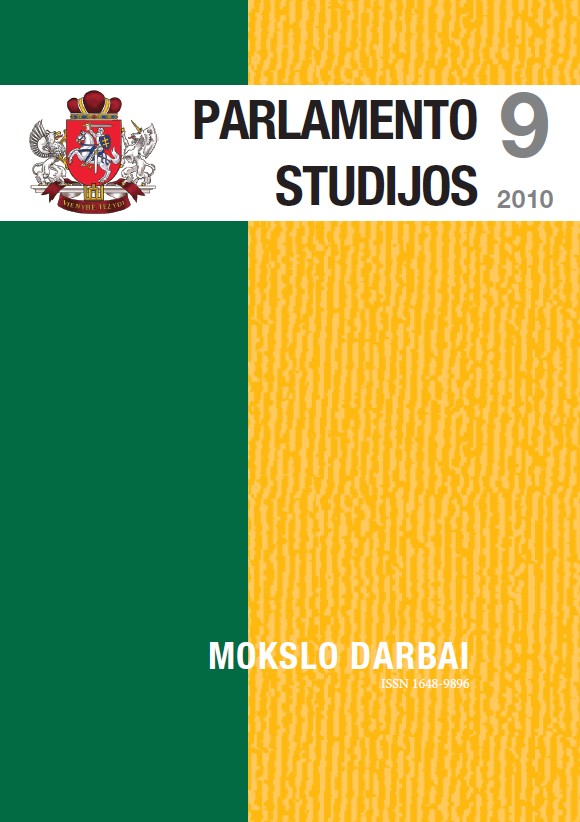Information providence for deputies - the means to develop democracy
DOI:
https://doi.org/10.51740/ps.vi9.314Keywords:
information needs, information providence arba provision of information, decision making, parliamentary libraryAbstract
Access to and the dissemination of European content in global networks is one of the priorities of the Lisbon Strategy, utilizing all available digital technological abilities and creating a common European information network, which allows for the implementation of the idea of a unified Europe. The problem of the provision of information to the government and its transparency is relevant within the context of the creation of a unified and transparent Europe. Decisions based on knowledge and information ensures the work of the parliament is effective. A parliament provided with independent, unbiased and objective information is capable of carrying out its main functions the process of legislation, implement parliamentary control and represent voters; a parliament provided with necessary information acquires more control in the political process and is less dependant upon the executive authority. This publication mostly deals with the role of information in decision-making, taking into consideration studies conducted on the informational requirements of parliamentarians and the information provided to them, and acquaints the reader with the state of provided information to Lithuania's parliamentarians. The provision of information to Lithuania's parliamentarians is executed by subdivisions of the Seimas of the Republic of Lithuania and Martynas Mažvydas National Library of Lithuania, utilizing the information system of the Seimas of the Republic of Lithuania and LIBIS for these functions. It can be stated that the operation of these two institutions, providing parliamentarians with the most necessary information for decision- making, is coordinated, however the interaction of these institutions has not been studied more comprehensively. When reforming parliamentary libraries according to innovative trends and technological growth, it is important to take into consideration the informational requirements of parliamentarians, which are dynamic and subject to many factors. The Seimas of the Republic of Lithuania Parliamentarian research department analyzes questionnaires carried out on the informational needs of Lithuania's parliamentarians, however comprehensive scientific studies have not been performed.








 The metadata of the scholarly journals and publications of the Lithuanian National Martynas Mažvydas Library is distributed by
The metadata of the scholarly journals and publications of the Lithuanian National Martynas Mažvydas Library is distributed by 